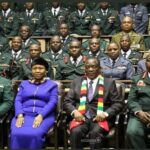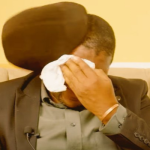Harare is on edge as President Emmerson Mnangagwa prepares to assume the chairmanship of the Southern African Development Community (SADC) during the 44th Ordinary Summit of Heads of State and Government, scheduled for August 17, 2024. While the government is pulling out all the stops to ensure a successful event, the backdrop of political unrest and a relentless crackdown on dissent casts a long shadow over the preparations.
The Zimbabwean diaspora, angered by the lack of commitment from SADC leaders to address the disputed 2023 election results and the ongoing human rights abuses under Mnangagwa’s rule, have vowed to make their voices heard on a global scale. They see the handover of the SADC chairmanship to Mnangagwa as a blatant legitimization of a regime they consider illegitimate and tyrannical, New Zimbabwe reported.
“The Zimbabwean economic situation is nothing short of dire. Hyperinflation has eroded the value of the Zimbabwean dollar, leading to widespread poverty and unemployment. Basic goods are scarce, and many Zimbabweans struggle to afford necessities like food, fuel, and healthcare,” said Tendai Mapfumo, a Zimbabwean living in the United Kingdom. “As Zimbabweans in the diaspora, we watch with a mixture of disbelief and dismay as our home country assumes the chairmanship of SADC. This move, which should symbolise progress and leadership within the region, instead highlights the ongoing mismanagement, human rights abuses, and economic missteps that have plagued Zimbabwe for decades.”
Pamela Magwizi, another Zimbabwean living abroad, echoes these sentiments, stating that Mnangagwa is unfit to lead a credible regional grouping. “The government’s response to the multiple crises facing people back home has been inadequate at best, with economic policies that have failed to stabilise the currency or attract meaningful foreign investment.”
In preparation for the high-profile event, the government has implemented stern measures to prevent any form of dissent in Harare. All public gatherings have been banned, effectively silencing any potential protests during the summit. This move, coupled with the ongoing crackdown on dissent, has sparked further outrage among activists and human rights groups.
“The government of President Mnangagwa is accelerating its crackdown against legitimate and peaceful activism ahead of the August summit,” said Allan Ngari, Africa advocacy director at Human Rights Watch. “SADC needs to engage with the authorities to take clear measures to ensure the enjoyment of basic freedoms by all Zimbabweans.”
The government’s response to any hint of dissent has been swift and uncompromising. On June 16th, police raided a private home in Harare, arresting over 70 people, most of them young, at a gathering to commemorate the Day of the African Child. The detainees were charged with participating in a gathering with the intent to promote violence, breaches of the peace, or bigotry, as well as disorderly conduct.
Their lawyers maintain that the gathering was a barbecue (braai) at the home of Jameson Timba, an opposition leader, and that the charges are politically motivated. Despite this, a Harare magistrate denied them bail, ruling that they were likely to commit similar offences if released.
This incident underscores the government’s intolerance for any form of dissent, especially in the lead-up to the SADC summit. The government’s heavy-handed approach has been condemned by international human rights organisations, who have called for the immediate release of the detainees and an end to the crackdown on dissent.
While the government has effectively stifled any possibility of protests in Harare, the global Zimbabwean diaspora has coordinated massive demonstrations to take place across the world, aiming to send a clear message to Mnangagwa and the SADC leadership. These demonstrations, planned for the same date as the summit, will serve as a powerful display of solidarity and a demand for accountability.
The demonstrations, both within Zimbabwe and across the globe, are a testament to the growing frustration and anger towards the Mnangagwa regime. Zimbabweans, both at home and abroad, are determined to make their voices heard and demand accountability for the government’s actions. They are calling for an end to the repression, a return to democratic principles, and a commitment to addressing the country’s economic and social challenges.












